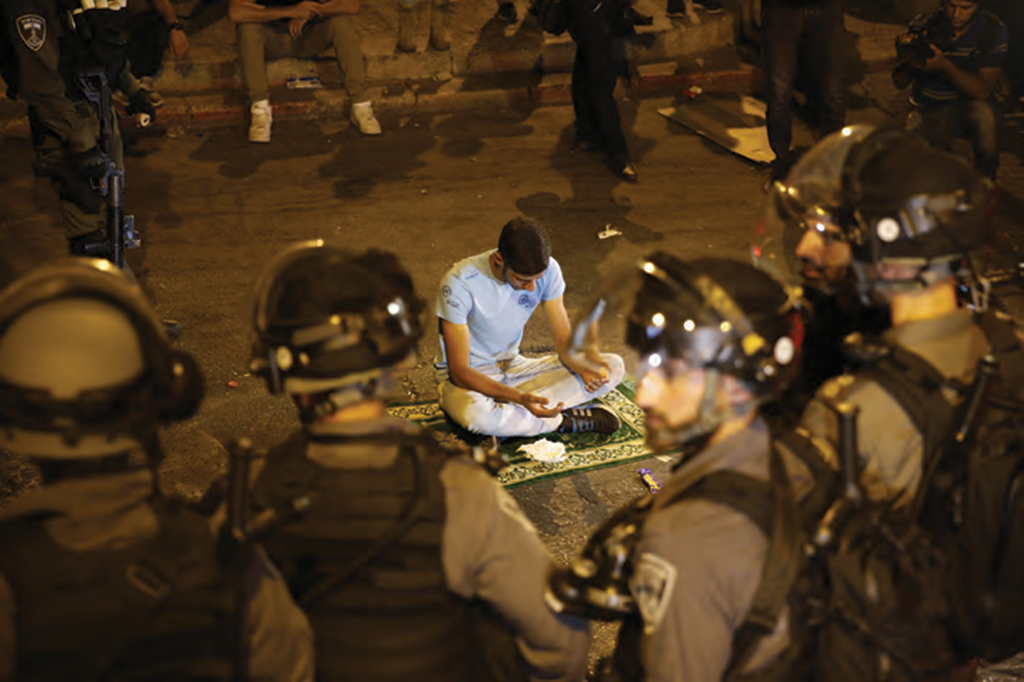Ever-present Tensions in Al-Aqsa and Jerusalem
One of the articles I was reading while researching for my group presentation on the Al-Aqsa Mosque depicted the events of the British Invasion of Palestine in 1917. This article was published in July 2017 by Abdallah Marouf Omar under the title of “Al-Aqsa Mosque’s Incident in July 2017: Affirming the Policy of Deterrence”. This event was important because it was the first time a “non-Muslim power would control the holy city of Jerusalem” since the end of the Crusades (Omar 69).
I found this article to be interesting because it adds context for me personally regarding the current-day conflict in Israel and Palestine, which is something I have been eager to learn more about since the events of October 7th in 2023. It also directly involves the role that holy sites and sacred spaces play in interactions with political tensions. The transcendence of sacred spaces throughout time is beautiful in that it demonstrates the timelessness of sacred spaces. They grow with culture and society, yet uphold traditional beliefs and customs. Yet, it is important to understand that with this beauty there is also immense struggle and tension.
Like I said, these sacred spaces are also intertwined with politics, as we have seen throughout history. Jerusalem specifically is unique because of the various shared sacred spaces, and the fragility of said spaces. In reference specifically to Al-Aqsa, there is an incident in this article that shares the event in which the mosque was occupied by Israeli forces as a part of the Six Day War in June of 1967 (Omar 70). My initial reaction is to think of the question, how would I feel if I was a Muslim in Jerusalem during this - during any contentious moment in Jerusalem’s long history - how would I respond? If my home mosque happened to be Al-Aqsa itself, what toll would this take on me?
"A Palestinian worshipper, who was banned from entering to al-Aqsa Mosque, prays outside Lions' Gate, a main entrance to the mosque. | AFP PHOTO / AHMAD GHARABLI "As we have talked about in class, specifically in my small group discussion of “Tourists” by Yehuda Amichai, people often forget that there are civilians of Jerusalem that live everyday lives amongst these sacred spaces. While many see Jerusalem as a destination, there are people who are subject to the intense tensions in these sacred spaces as a result of politics. My personal conclusion after reading this article is simple - Jerusalem is a rich city with an intense history, and while it would be a blessing to live in or visit, to be ignorant of tensions that arise from such a densely contentious area would be disrespectful.


Nice post that looks at the city of Jerusalem from the perspective of those living there at different pivotal points in the city's history. Sacred space, historical events/details, real people living their lives, struggles, tensions; all of these are parts of the stories of Jerusalem.
ReplyDeleteClarification: your first paragraph is a bit confusing because your focus is an incident in 1917, but the title of the article you cite is about an incident in 2017. At first I thought you were writing that 2017 was the first time...